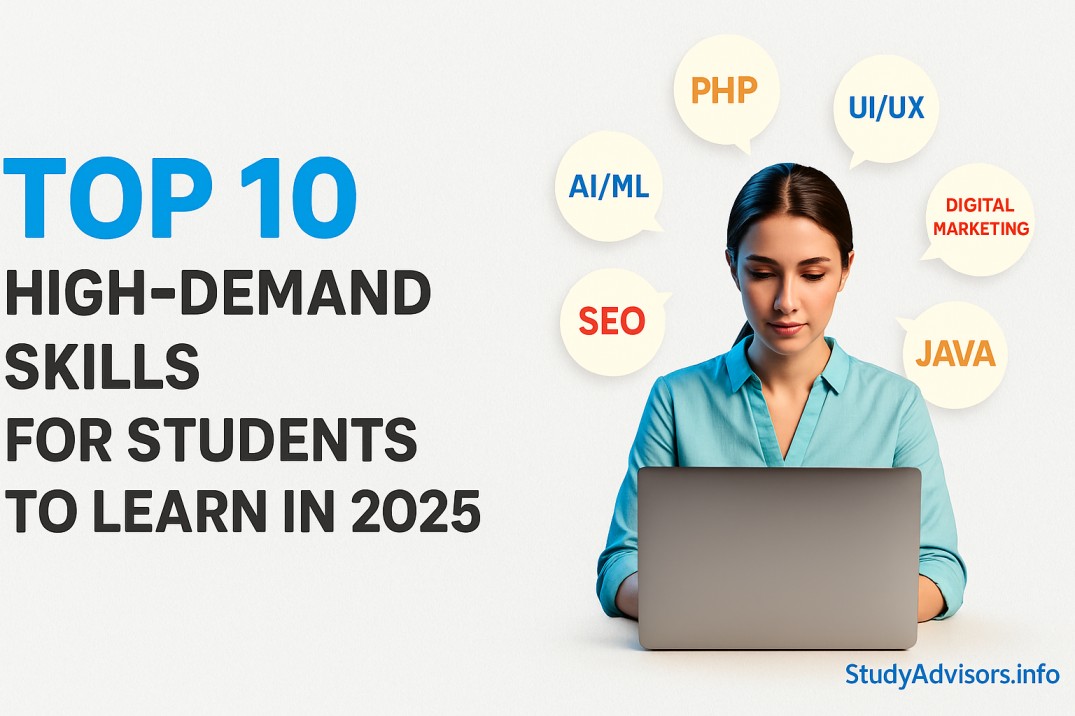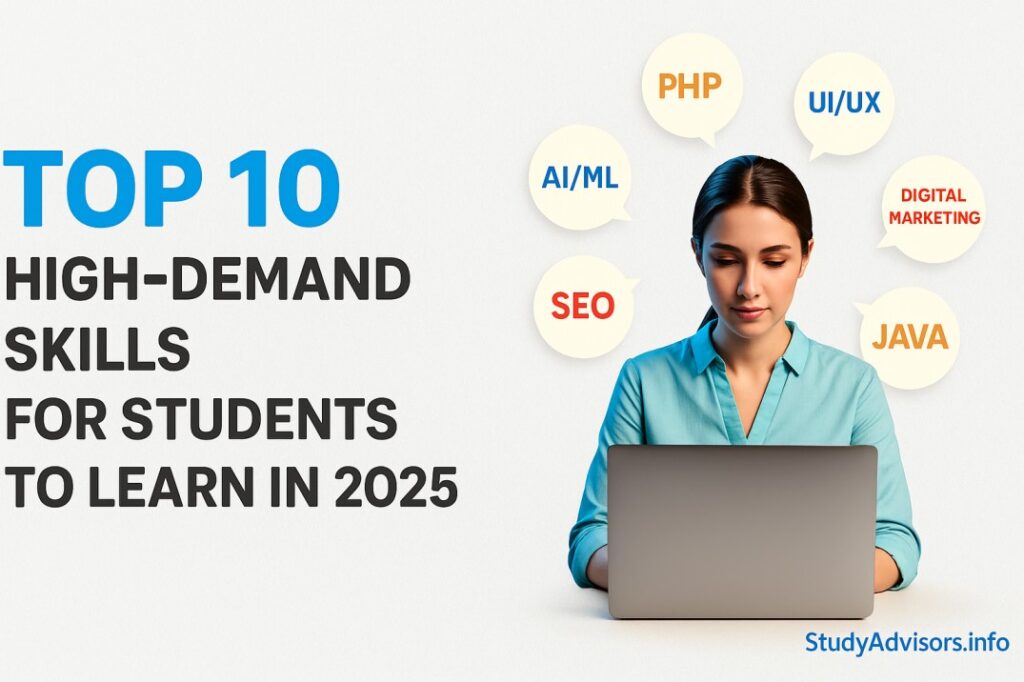A question I hear from students almost every week is: “Sir, is my degree enough to get me a good job?” I usually smile and say, “It depends… but honestly, not anymore.” A degree is still valuable — it proves you’ve studied and passed exams — but the job market in 2025 has moved far beyond certificates. Employers want something extra. They want to see if you can actually solve problems, adapt to change, and bring practical skills to the table.
Let me give you an example. A few years ago, I worked with two graduates from the same university program. Both had almost identical grades. One of them had also spent time learning digital marketing on the side, building a small portfolio by helping his uncle’s business get online. The other had only focused on exams. Guess who got hired within three months? The one with the extra skillset. The other struggled for almost a year.
This is the reality: skills now decide careers. And the good news is, you don’t need to wait until after graduation to learn them. With free tools, online courses, and even small personal projects, students can build skills that employers notice immediately.
In this guide, I’m going to walk you through the ten skills that will matter most in 2025. These are not random buzzwords. They are based on what companies are hiring for, what industries are investing in, and what I’ve personally seen transform the careers of young graduates.
1. Artificial Intelligence and Machine Learning
Think about how your phone finishes your sentence while you’re typing, or how YouTube suggests videos that somehow match your taste. That’s not luck. That’s Artificial Intelligence (AI). AI is no longer something futuristic — it’s quietly shaping our daily lives.
For students, AI is both a challenge and a huge opportunity. I had a student in Dubai who built a simple chatbot during his final year. It only answered basic questions about campus events, but when he showed it during an interview, the hiring manager was impressed. Not because it was perfect, but because it showed initiative and application. That project helped him land his first job.
If you want to explore AI, begin with Python programming. Don’t aim to master everything overnight. Start small: maybe train a model to recognize hand-written numbers or create a basic text generator. Each little step gives you confidence. By 2025, companies will value students who can not only talk about AI but also show how they’ve used it.
2. Digital Marketing
When I ask students how many hours they spend on Instagram, TikTok, or YouTube, the answers are always high. Then I ask, “Do you know you could turn that time into a career?” That’s when their eyes open. Digital marketing is exactly that — understanding how businesses grow online.
I once mentored a student who helped his father’s small clothing store run Facebook ads. He started with trial and error, spending very little. Within months, sales doubled. When he applied for jobs later, he didn’t just talk about theory — he showed results. That’s what employers want.
If you’re curious, start by building your own small blog or promoting a side project on social media. Track what works and what doesn’t. Free courses are available on Google Skillshop and HubSpot, but your own experiments will teach you faster. Digital marketing is flexible too — you can work in a company, freelance, or even launch your own brand.

3. Cybersecurity
Almost every week, news breaks about companies being hacked. Banks, hospitals, schools — no one is safe. As more data moves online, the need for cybersecurity experts is exploding.
A student I advised in Lahore once told me he loved puzzles. I suggested he look into ethical hacking. A year later, he was helping companies test their own systems for weaknesses. His “puzzle hobby” had turned into a career.
Cybersecurity roles are not just well-paid, they are respected. To get started, learn the basics of how networks function. Then explore certifications like CompTIA Security+. Even practicing on your own Wi-Fi — learning how to secure it, spot threats, and block them — is a great first step. Employers value students who show they understand the importance of protecting digital information.
4. Data Analysis
We live in an age of information overload. Companies gather mountains of data, but without skilled people to analyze it, that data is useless. This is where data analysis comes in.
Imagine a university collecting attendance, grades, and extracurricular data. Alone, it’s just numbers. But a skilled analyst can show patterns — for example, how attendance impacts exam performance — and help design better policies. The same applies in business, healthcare, sports, and almost every other field.
A student I worked with in Karachi learned Excel deeply, then moved to SQL and Power BI. He started analyzing cricket statistics for fun. Later, he used those same skills in a corporate setting, and his resume stood out.
If you want to start, master Excel beyond the basics, then move on to visualization tools like Tableau. Once you can tell a story with data, employers will notice.
5. Communication and Public Speaking
Let’s be honest: a brilliant idea is wasted if you can’t explain it. Communication and public speaking remain timeless skills. They are not optional — they are essential.
I remember one engineering student who had excellent technical knowledge but froze during presentations. We worked on his confidence step by step: practicing in front of small groups, recording himself, and learning how to pace his voice. Six months later, he was leading team discussions comfortably. That growth impressed recruiters more than his technical grades.
Good communication isn’t just about English fluency. It’s about clarity, confidence, and adjusting your tone for your audience. If you can write a clear email, present a proposal, or lead a discussion, you immediately set yourself apart.
6. Critical Thinking and Problem-Solving
Employers love students who don’t just accept problems but question them. Critical thinking is about asking why and how, not just memorizing answers.
Take an example: a company losing customers. A poor problem-solver might blame competition and stop there. A critical thinker digs deeper — is it pricing, product quality, or customer experience? That mindset creates solutions instead of excuses.
You can practice this daily. Read case studies, analyze decisions in the news, or even question your own habits. I encourage students to ask: “Is there a better way?” The ability to think critically is what makes future leaders stand out.
7. Cloud Computing
Behind almost every app you use — Netflix, Dropbox, Google Drive — lies cloud computing. Businesses are moving their systems to the cloud for flexibility and cost savings, which is why demand for cloud experts is soaring.
A student I guided once hosted a simple personal website on AWS as a project. That small exercise became a conversation point in his interview, and the company loved it. Sometimes, little demonstrations of skill go a long way.
If you want to get started, try free beginner accounts on AWS or Google Cloud. Host a basic project, learn how to store data, and understand how virtual servers work. By 2025, cloud knowledge will no longer be “nice to have” — it will be expected.
8. Financial Literacy
It still surprises me how many graduates can solve complex equations but don’t know how to manage their own salaries. Financial literacy is a life skill as much as a career skill.
I met a student who earned a decent income from freelancing but kept running into debt. Why? Because he had no plan for budgeting or saving. Once he learned basic money management, he not only avoided debt but started investing small amounts regularly. Within two years, he had a safety net most of his peers lacked.
Start with the basics: track your monthly expenses. From there, set savings goals, understand interest rates, and learn about investments. Employers value financially literate graduates because they manage projects responsibly — and personally, this knowledge gives you independence.
9. Graphic Design and Creativity
In a fast-scrolling digital world, visuals grab attention before words. Graphic design is not just about making things look pretty — it’s about communicating ideas quickly and effectively.
I once worked with a student who loved drawing. She began experimenting with Canva and later mastered Photoshop. Within a year, she was designing logos and social media content for small businesses. What began as a hobby became her freelance income stream.
If you’re creative, start small. Use Canva to design posters, then gradually move to tools like Adobe Illustrator. Keep a portfolio — even practice projects count. Employers don’t ask where you learned; they want to see what you can do.

10. Foreign Languages
Globalization has made multilingualism a true career advantage. Knowing a second language doesn’t just look good on a resume; it opens doors to international opportunities.
One of my students learned Spanish while studying engineering. Later, he applied for a role in an international company that required communication with South American clients. His technical skills got him the interview, but his Spanish secured him the job.
Languages like Mandarin, Spanish, and Arabic are especially valuable. But any language shows adaptability. Even dedicating 15 minutes daily with apps like Duolingo or talking with native speakers online can build real ability over time.
???? Quick Comparison: Skills in 2025
| Skill | Demand Level | Career Impact Examples |
|---|---|---|
| Artificial Intelligence | Very High | AI engineer, Data scientist |
| Digital Marketing | High | SEO specialist, Social media manager |
| Cybersecurity | Very High | Ethical hacker, Security analyst |
| Data Analysis | High | Business analyst, Researcher |
| Communication Skills | Universal | Leadership, Consultancy, Teaching |
| Critical Thinking | Universal | Strategy roles, Policy making |
| Cloud Computing | Very High | Cloud engineer, DevOps specialist |
| Financial Literacy | Medium–High | Financial analyst, Entrepreneur |
| Graphic Design | High | Designer, Brand consultant |
| Foreign Languages | High | Translator, International manager |
Conclusion
The world of 2025 will not reward students who wait for opportunities; it will reward those who prepare for them. Degrees will remain important, but what truly sets graduates apart are the skills they carry into the workplace.
From AI and digital marketing to critical thinking and financial literacy, each skill we’ve discussed gives you an edge. My advice, as an education consultant, is not to overwhelm yourself trying to learn everything at once. Pick two or three areas that excite you, dedicate consistent effort, and build small projects to apply your knowledge.
Within a year, you’ll see a transformation. Employers will notice, your confidence will grow, and you’ll be ready for opportunities that others miss. Remember: education builds the foundation, but skills build the future.
Code will appear on Next Page







